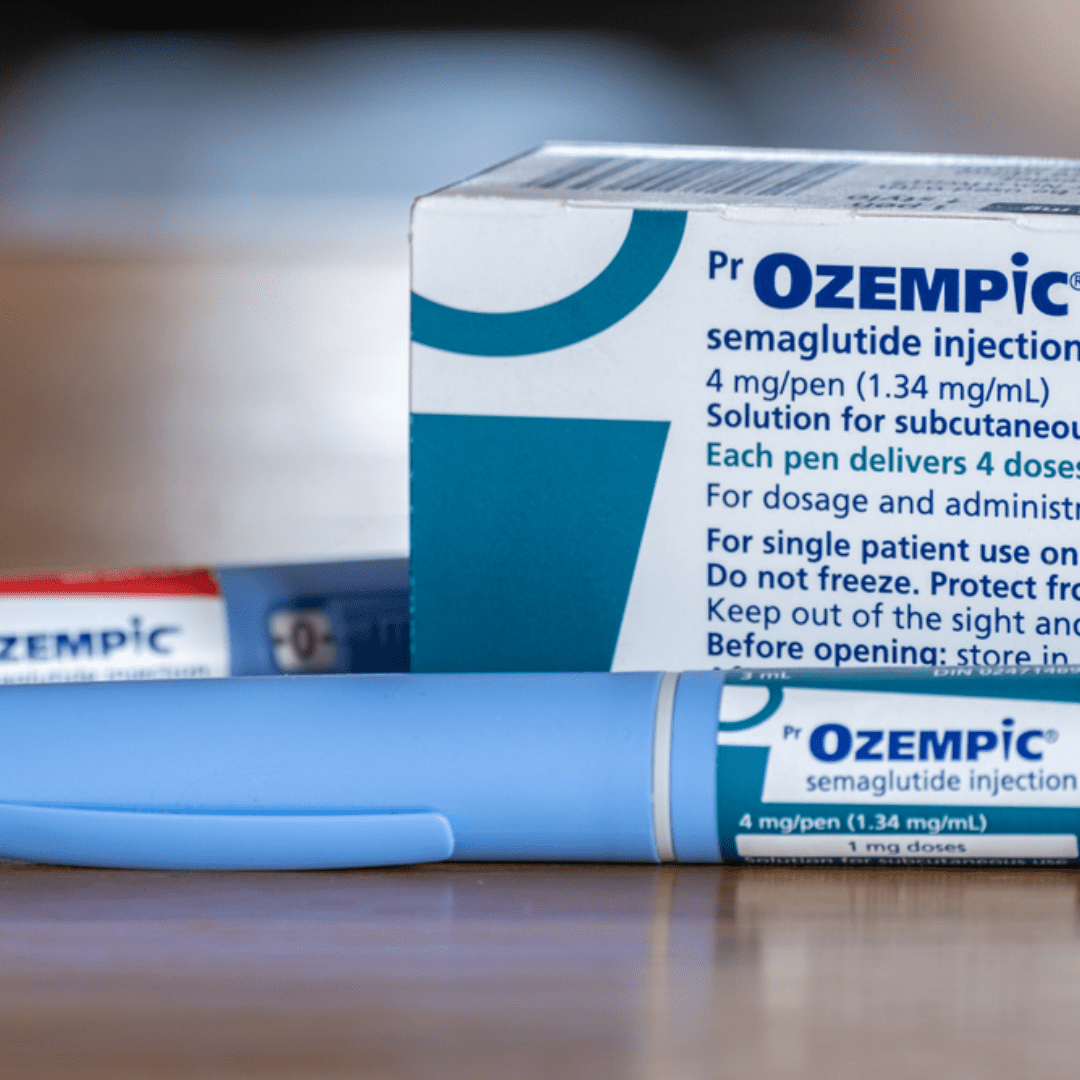Update: Defendants Eli Lilly and Novo Nordisk Still Face Majority of Claims in Ozempic MDL
In August, 2025, U.S. District Judge Karen Spencer Marston refused to dismiss 12 of the 17 counts facing drug manufacturers Eli Lilly & Co. and Novo Nordisk related to injuries arising from the use of their popular weight loss drugs such as Ozempic, Wegovy, Mounjaro and Trulicity. The Motion to Dismiss had been filed by the defendants in January, 2025, who argued that the plaintiffs had failed to present valid claims, which would require the court to dismiss all except those alleging the companies’ failure to warn about the risks of gastrointestinal issues.
There are currently more than 2600 cases filed against Eli Lilly and Novo Nordisk centralized into an MDL pending in the Easter District of Pennsylvania. The plaintiffs allege that use of the drugs, known as glucagon-like peptide-1 (GLP-1) receptor agonists can result in severe and life-threatening gastrointestinal problems including “gastroparesis; bowel obstruction; necrotizing pancreatitis; gallbladder disease; aspiration of gastric contents and secondary complications such as micronutrient deficiencies; and Wernicke’s encephalopathy”.
In November 2024, the Judge approved the filing of a Master Complaint designed to list the common allegations against the defendants and streamline the process through the use of short-form complaints. In a January, 2025 motion, defendants sought to have Counts III to XIV of the Master Complaint dismissed for “failure to state a claim upon which relief can be granted and to strike redundant, immaterial, and impertinent matter contained in the Master Complaint.” On March 18, Plaintiffs argued in their response that the plaintiffs’ design-defect claims were not preempted and were adequately pled; that the plaintiffs properly alleged negligence and negligent undertaking; and that the plaintiffs adequately preserved state product liability act claims. In addition, their response noted “To the extent the Court is inclined to grant any part of the Motion, plaintiffs request they be given an opportunity to amend the Master Complaint to cure any identified deficiencies.”
In her August 18 ruling, Judge Marston agreed in part with the defendants, dismissing plaintiffs’ design defect claims and requests for medical monitoring and finding other allegations about fraudulent omissions too vague. She did, however, sustain the majority of plaintiffs’ claims, allowing them to amend the master complaint to add more specificity and revise individual plaintiff complaints later in the process.
Update: State AGs Step in Amid Lax Federal Oversight on GLP-1 Drugs
Based on reporting from Law.com
As the FDA undergoes staffing cuts and reduced enforcement capacity, state attorneys general are stepping in to fill the regulatory void—most recently by targeting counterfeit versions of GLP-1 drugs, a popular class of medications used for diabetes and weight loss.
According to Law.com, AGs in states like Ohio and Connecticut have already taken action against med spas and online clinics promoting unauthorized compounded versions of drugs like semaglutide and tirzepatide—the active ingredients in Ozempic, Wegovy, and Mounjaro. In some cases, warning letters were issued; in others, lawsuits were filed against companies marketing bootleg or “research grade” versions of the drugs.
Legal experts interviewed by Law.com suggest this trend will likely expand. “It’s fairly likely that this trend will continue and broaden to some of the legitimate actors,” said Keturah Taylor of Cozen O’Connor. That could include pharmaceutical companies and even social media influencers promoting the medications.
With FDA enforcement uncertain and demand for GLP-1 drugs at an all-time high, state AGs are using consumer protection laws to intervene. To avoid enforcement actions, attorneys advise legitimate manufacturers and compounding pharmacies to proactively engage with regulators. “You’re either at the table or on the menu,” said Richard Van Buren of Cozen O’Connor Public Strategies.
A bipartisan group of 38 AGs has already urged the FDA to intensify action, citing health risks from foreign-sourced counterfeit drugs. But as political divides widen, future enforcement may come more from aligned coalitions of AGs than broad federal action.
“This creates a challenging atmosphere,” said Collie James of Morgan Lewis. “Companies that want to stay out of the crosshairs should prioritize outreach and education with state AGs now.”
As enforcement efforts around GLP-1 drugs intensify, it’s critical for legitimate stakeholders—whether pharmaceutical manufacturers, law firms, or compound pharmacies—to be proactive.
Update: Plaintiffs Request that Ozempic-Related Vision Loss Cases Be Consolidated in New Jersey
On June 12, 2025, five law firms representing 21 plaintiffs alleging GLP-1-related injuries submitted a letter to the Administrative Office of the Courts requesting that their lawsuits be designated as a Multicounty Litigation (MCL) in New Jersey State Court; the consolidation is intended to streamline the proceedings and guarantee consistency in rulings. Plaintiffs in the prosed MCL have developed Nonarteritic Anterior Ischemic Optic Neuropathy (NAION) as a result, they claim, of using the glucagon-like peptide-1 receptor agonists Ozempic and/or Wegovy (“GLP-1Ras”) These drugs, manufactured and sold by Novo Nordisk, Inc. (“Novo Nordisk”) are typically prescribed for treatment of type 2 diabetes and weight loss. According to the letter written to the Court:
Both medications contain the same active ingredient, semaglutide. These medications have resulted in extreme weight loss and not surprisingly, are immensely popular. But the scientific literature has identified a very concerning heightened risk of developing NAION amongst users of these drugs. NAION results in permanent vision loss with the typical scenario of a patient waking up in the morning unable to see out of one eye. Sadly, there is no treatment whatsoever for NAION.
In support of their lawsuits, plaintiffs point to a recent study by the European Medicines Agency (EMA) that indicated that the drugs’ product information should be updated to include warnings of the risk of developing NAION; the FDA is considering similar regulatory action. The letter requests that the cases be centralized in either Middlesex, Bergen or Atlantic counties with a preference for Middlesex given the fac that Novo Nordisk’s principal place of business is in Plainsboro. The plaintiffs have alleged that manufacturer Novo Nordisk knew or should have known of the risks and failed to warn users of the potential risks of vision loss when taking the drugs. This MCL request is limited to the cases involving NAION injury and does not include those cases that are part of the larger MDL that is venued in Pennsylvania, involving gastrointestinal injuries incurred by users of the same medications.
The parties suffering NAION-related injuries are represented by Weitz & Luxenberg PC, Motley Rice LLC, Parker Waichman, Anapol Weiss and Sullivan Papain Block McManus & Cannavo PC
The Judicial Panel on Multidistrict Litigation (JPML) has centralized lawsuits involving GLP-1 receptor agonists such as Ozempic, Wegovy, and others, following rising concerns about their safety and alleged risks.
JPML Consolidates Lawsuits Against Weight Loss and Diabetes Drugs
On February 2, 2024, the JPML consolidated 55 lawsuits involving popular diabetes and weight-loss medications, including Ozempic, Wegovy, Rybelsus (manufactured by Novo Nordisk), and Trulicity and Mounjaro (manufactured by Eli Lilly & Co.). Originally developed for type-2 diabetes management, these drugs are increasingly being used for weight loss but have been linked to severe gastrointestinal conditions, including:
- Gastroparesis (stomach paralysis)
- Ileus
- Intestinal obstruction
- Cyclic vomiting syndrome
- Nonarteritic anterior ischemic optic neuropathy (NAION), a rare eye condition that can cause blindness
The cases were centralized in the U.S. District Court for the Eastern District of Pennsylvania, initially under U.S. District Judge Gene E.K. Pratter. Plaintiffs allege that the manufacturers failed to warn patients about these risks, while Novo Nordisk and Eli Lilly maintain the claims lack merit.
If your law firm needs MDL or class action case management help, contact Verus today!
Leadership Chosen for Ozempic, Wegovy MDL
To streamline the management of the MDL, Judge Pratter appointed a leadership committee of eight attorneys to represent the plaintiffs. This committee will be responsible for developing litigation strategies, coordinating discovery, and making key decisions on behalf of the plaintiff class. The appointed attorneys are:
- Sara Couch (Motley Rice, Charleston, SC)
- Mike Daly (Motley Rice, Philadelphia, PA)
- Stacy Hauer (Johnson Becker, St. Paul, MN)
- Paul Pennock (Morgan & Morgan, New York, NY)
- Cameron Stephenson (Levin, Papantonio, Pensacola, FL)
- Marcus Susen (Susen Law Group, Fort Lauderdale, FL)
- Alex Walsh (Anapol Weiss, Washington, D.C.)
- Diandra “Fu” Debrosse Zimmermann (DiCello Levitt, Birmingham, AL)
Plaintiffs’ liaison counsel includes Roberta Liebenberg (Fine, Kaplan & Black, Philadelphia, PA) and Nina Spizer (Dilworth Paxson, Philadelphia, PA). Despite concerns raised about the transparency of the appointment process, this leadership team will steer the growing litigation, which is expected to encompass over 10,000 cases.
New Leadership Following Unexpected Circumstances

Judge Marston now oversees the litigation involving the alleged failures of Novo Nordisk and Eli Lilly to adequately warn patients of the risks associated with GLP-1 RAs. These drugs, which slow digestion to create feelings of fullness, have been marketed as effective tools for weight management but have been implicated in severe gastrointestinal injuries.
Future Implications of Ozempic Weight Loss Litigation
The Ozempic MDL has the potential to reshape the pharmaceutical industry’s approach to drug development, marketing, and safety. The outcome of these cases could lead to significant changes in regulatory standards, increased scrutiny of drug labeling, and potential liability for drug manufacturers.
Ozempic and Weight Loss MDL Questions
As the Ozempic litigation progresses, several key questions remain:

- What role will expert witnesses play in establishing causation and damages?
- How will the courts address the complex scientific and medical issues involved?
- What potential damages and remedies could be awarded to plaintiffs?
- Will there be a settlement of the cases that have been consolidated into the MDL
While the future of these weight loss MDL cases is uncertain, it is clear that they have significant implications for both the pharmaceutical industry and consumers. As the litigation unfolds, it will be crucial to monitor developments and assess the potential impact on future drug development and patient safety.
Partner with Verus for Mass Tort and Class Action Services
Verus offers comprehensive legal solutions to help mass tort and class action law firms streamline their case management, enhance client communication, and optimize their litigation strategies.
By partnering with Verus, law firms can improve efficiency, reduce costs, and achieve better outcomes in complex mass tort and class action cases.
Contact us today to learn more about how Verus can empower your firm.
Stay Updated on the Latest Ozempic and Weight Loss MDL Developments:
Bookmark this page to stay informed about the latest updates on the Ozempic MDL and related litigation developments.
You can also follow us on social media for the latest Ozempic and GLP-1 RA litigation news and insights.







